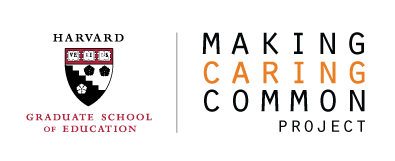Girls Leadership Program Checklist
Although girls and women have made tremendous gains in school and work over the last few decades, females still continue to face challenges and barriers to leadership, including gender biases.
As adults, there is much we can do to prevent and reduce gender biases, including checking our own biases and being aware of the messages we are sending to both boys and girls day-to-day. There is also much we can to do to prepare girls to become leaders.
A wide variety of programs and interventions directly or indirectly foster leadership skills in girls, varying extensively in activities, length, and research base. These programs range from classic girls-only activity based programs such as the Girl Scouts and Girls Inc. to more targeted programs and curricula specifically developed to build leadership. Opportunities span a multitude of interests, many representing increasing efforts to engage girls in fields in which women continue to be underrepresented (e.g. STEM, public office).
Given the wide variety of programs and interventions that foster leadership skills in girls and the limited research on efficacy, it can often be challenging to select a program. Based on research and the wisdom of practitioners, and based in part on recommendations from the Girl Scout Research Institute, we have created the following easy to-use guide to help parents and educators identify high quality girls’ leaderships programs.
Program Checklist
Programs should include the following key components.
EXPOSURE
Leadership programs should expose girls to a wide range of professions. Even when girls are provided leadership opportunities, they commonly lack exposure to leadership in certain fields, such as business and politics. Research also suggests that educational and cultural practices tend to depict men in a larger variety of occupations and as agents of change while women are more frequently portrayed as observers or victims. Look for programs or activities that include the following:
Career exploration
Opportunities to hear from and/or meet inspiring female leaders in a wide range of fields
Resources and support for finding internships and volunteer or shadowing opportunities
SKILL DEVELOPMENT
Leadership programs should focus on concrete skill development. Girls’ lack of confidence appears to be one of the strongest factors deterring them from pursuing leadership, and skill development can boost girls’ confidence. Leadership programs should take on common, specific obstacles that deter girls from pursuing leadership, including fears of public speaking, appearing bossy, or being disliked. Look for programs that include instruction and practice on the following:
Public speaking
Conflict resolution
Effective or assertive communication
Problem solving
Networking and self-advocacy
Goal setting
“Our view is that there’s nothing that reduces stereotypes better than activist work that requires a diversity of girls to rely on one another as allies and demands coalition building for success.”
COLLABORATION
Leadership programs and strategies should promote collaboration and a sense of solidarity among girls. Collaboration and teamwork are not only essential skills for today’s workplace, these experiences can help girls develop perspective-taking, social awareness, and respect. Working in diverse groups can be especially valuable—breaking down stereotypes and enabling girls to draw on rich wisdom about leadership in various cultures. Through collaborative experiences and relationship building, girls can also work to override competitive feelings. Look for programs that include the following:
Team or group-based projects/activities
Relationship building experiences or skill-building
Opportunities to work with diverse groups (i.e., ages, cultures, etc.)
MENTORSHIP
Leadership programs should connect girls with older, respected girls and women who can model and inspire them to seek out leadership and guide them in navigating barriers they face to pursuing leadership. Mentors can be formal or informal, including volunteers who interact with girls on a regular basis. Mentors not only act as role models who can inspire and foster leadership, they can also be important models of ethical values. Women of all ages should join girls as allies and mentors in collective efforts. Look for programs that include:
Counselor in-training, big sisters, or other program elements that connect girls with older girls and women
Peer leadership programs
Trained staff and volunteers
HIGH EXPECTATIONS AND MEANINGFUL OPPORTUNITIES
Leadership programs should hold girls to high expectations and provide them with real, meaningful opportunities to take responsibility for others. Girls will develop confidence and the desire to pursue leadership when they take on problems that are meaningful to them. Look for programs that include:
Youth-led projects or initiatives and programs that give girls opportunities to choose causes that matter to them
Opportunities for girls to teach and lead others
Programs that incorporate chores, tasks, and expectations
Last reviewed October 2018.





